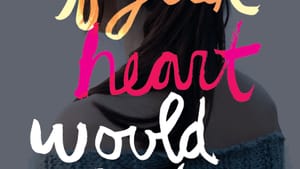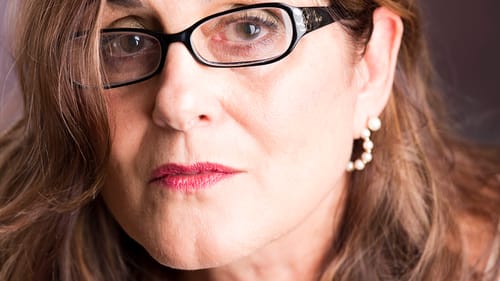Stay in the Loop
BSR publishes on a weekly schedule, with an email newsletter every Wednesday and Thursday morning. There’s no paywall, and subscribing is always free.
Writing from wounds
‘Even If Your Heart Would Listen,’ by Elise Schiller

With Even If Your Heart Would Listen, author Elise Schiller wants to capture the memory of her daughter, Giana—athletic, ambitious, allergy-prone, anorexic and, ultimately, heroin-addicted—who died of an overdose in 2014, when she was 33.
Schiller also wants to castigate substance-abuse treatment centers, including some that treated Giana, for failing to provide adequate psychiatric services, blaming people with addiction for their supposed “character flaws,” adhering too rigidly to the Alcoholics Anonymous 12-Step model, and viewing medication-assisted treatment as a crutch.
In her new book, she courageously attempts to do both. But the result—part memoir, part interrogation of the recovery industry—doesn’t fully satisfy either aim. Instead, readers get a too-vague picture of Giana and her family interlaced with Schiller’s critique of substance-abuse treatment, an argument that might have made a succinct and urgent op-ed or magazine article.
Potential for good
And yet, I’m reluctant to find fault with a book that also has the potential to bring good. Schiller’s memoir may help other families affected by addiction feel a bit less alone. It may guide families to seek substance abuse treatment at licensed centers that address the whole person—including their addictions, co-occurring mental health disorders, and spiritual outlooks—and embrace evidence-based treatment with methadone, Suboxone, or similar drugs.
This book may also remind readers that opioid addiction is a ferocious, equal-opportunity scourge that can seize anyone, even a bright, middle-class, college-bound competitive swimmer growing up in the Philadelphia area.
Asking how
For any parent of a child with addiction, the haunting question is “how”? It’s the query that dogs David Sheff in his 2008 memoir, Beautiful Boy, which chronicles his son Nic’s addiction to crystal meth. It’s the question that leads Schiller, less effectively than Sheff, to examine Giana’s childhood in search of reasons.
What she finds—or, at least, what she relates—too often feels unexamined, cliched, or burdened with can’t-help-it parental guilt. In describing the day of Giana’s birth, Schiller writes of her eagerness to leave the hospital with her newborn daughter: “I didn’t want to be separated from the other kids,” she writes. “Maybe that was a sign, a bad sign. Maybe I should have been content to have a few days just with you.”
Later, describing Giana as a teenager, despondent over a break-up with a boy, Schiller writes of telling her daughter to “enjoy herself…and other similar platitudes. I have wondered since whether I should have taken her heartache more seriously.”

While such second-guessing is understandable, its inclusion makes the book feel emotionally heavy-handed; it also shifts the focus of attention from Giana—the main character, the one I wish I could know and understand—to her mother.
Knowing Giana
What’s clear is that Giana suffered from a young age: allergies treated with medication that made her nauseated; anorexia severe enough to warrant a stay at Philadelphia’s Renfrew Center (at age 19, she began about 18 months of treatments for her eating disorder); diagnoses of depression and anxiety disorder; addictions to tobacco, marijuana, and eventually, opioids. But she completed her bachelor's degree at the University of Vermont at 24, and later pursued studies as a vet tech. She loved dogs, and worked for awhile in an acute-care vet hospital.
At age 32, Giana entered drug treatment for the first time. “There’s a lot more going on than you know about, Mom,” she confided in a phone call. The “lot more” included a several-year addiction to Nubain, an injectable drug commonly used by bodybuilders and initially supplied to Giana by a boyfriend.
For the next 20 months, Giana cycled in and out of treatment centers, in and out of relapse, in and out of jobs. Sometimes she received psychiatric help for depression and anxiety; other centers hewed to a 12-Step model that required residents to acknowledge their powerlessness over their addictions and—in Schiller’s view—blamed them for “moral failings” rather than seeing their behavior as the result of a chronic, brain-altering disease.
Too soon?
Schiller is especially enraged at recovery programs that shun medication-assisted treatment, a regimen recognized in 2016 by the National Institute on Drug Abuse as one that can “restore balance to the brain circuits affected by addiction, allowing the patient’s brain to heal while working toward recovery.”
Could those medications have helped Giana? Could earlier intervention have kept her alive? Schiller spent months—and many pages of her book—poring over her daughter’s treatment records in an attempt to answer that question.
I’ve heard the wise adage that storytellers (playwrights, poets, preachers) should “write from their scars, not their wounds.” Perhaps it was too soon for Schiller to attempt this book; Giana died in 2014, and Schiller began almost immediately to dig through diaries and medical documents. The book emerged five scant years later—too soon, perhaps, for any parent to climb from an abyss of rage and grief in order to find clarity as a writer.
I found myself wishing Schiller had waited, wondering if more time and perspective might have borne a book with fewer details of Giana’s treatment and a richer sense of story—even one that ends, as we know from page one, in such deep sorrow.
Editor's note: an earlier version of this article incorrectly stated that Giana began drug treatment for the first time at age 22. She began drug treatment at age 32. We regret the error.
What, When, Where
Even If Your Heart Would Listen: Losing My Daughter to Heroin. By Elise Schiller. SparkPress, August 27, 2019. 245 pages, softcover; $16.95. Click here.
Sign up for our newsletter
All of the week's new articles, all in one place. Sign up for the free weekly BSR newsletters, and don't miss a conversation.

 Anndee Hochman
Anndee Hochman